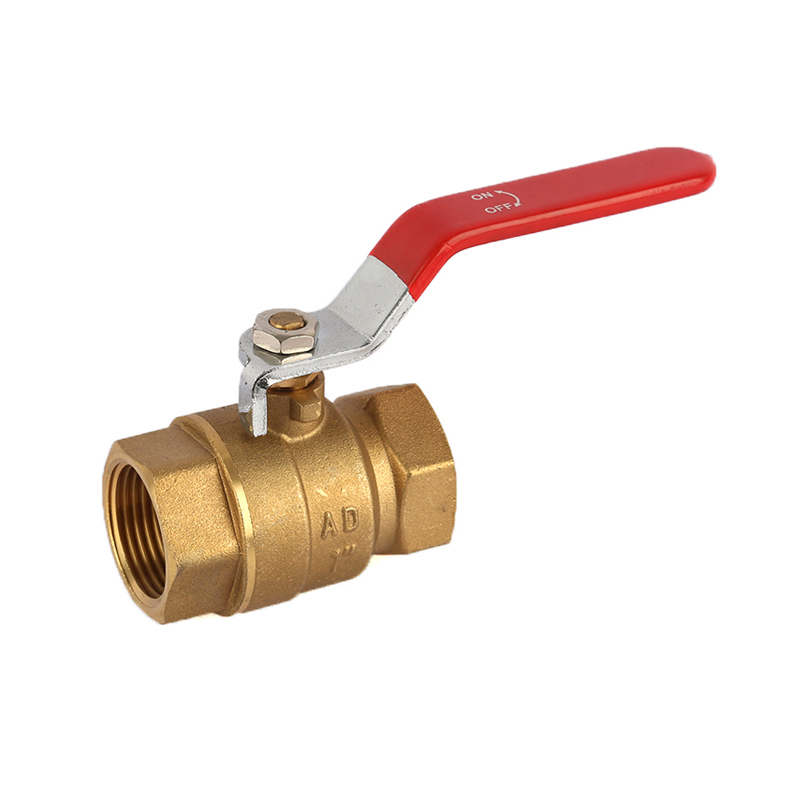The brass ball valve is a type of quarter-turn valve that utilizes a hollow, perforated, and pivoting ball to regulate the flow of fluids. It consists of a handle, a ball with a hole through its center, and inlet and outlet ports. When the handle aligns with the ports, the ball allows fluid to flow through; when turned perpendicular, it blocks the flow.
Advantages and Features
Durability: Brass, an alloy of copper and zinc, forms the core material for these valves. This alloy imparts exceptional durability, corrosion resistance, and strength to the valves, making them suitable for a wide range of environments and applications.
Versatility: Brass ball valves are versatile, capable of handling various fluids such as water, oil, gas, and certain chemicals. Their adaptability to different media makes them valuable across industries, from plumbing and HVAC systems to industrial machinery and petrochemical plants.
Reliable Sealing: The tight sealing mechanism of the brass ball valve minimizes leakage and ensures efficient control of flow. This reliability in sealing helps maintain system integrity and prevents wastage of fluids.
Ease of Operation: The quarter-turn operation of the valve handle provides quick and easy control over the flow, allowing for precise adjustments with minimal effort. This simplicity in operation is one of the reasons for their widespread use.
Applications Across Industries
Plumbing: Brass ball valves are commonly used in residential and commercial plumbing systems for shut-off applications. Their reliability and ease of use make them an ideal choice for controlling water flow in households, commercial buildings, and municipal water systems.
Industrial Processes: In industrial settings, these valves are crucial components in controlling the flow of various fluids in manufacturing processes. Their ability to withstand high pressure and temperatures makes them suitable for use in chemical processing, petrochemicals, and refining industries.
HVAC Systems: Heating, ventilation, and air conditioning systems utilize brass ball valves to regulate the flow of water or refrigerant. Their resistance to corrosion in both hot and cold environments makes them well-suited for HVAC applications.
Agriculture and Irrigation: Brass ball valves are also employed in agricultural irrigation systems, where they help control the flow of water efficiently, ensuring proper distribution and conservation.
Maintenance and Care
Regular maintenance is essential to ensure the continued optimal performance of brass ball valves. Flushing the system regularly, inspecting for leaks, and lubricating moving parts are key maintenance practices. Additionally, prompt replacement of worn-out seals or components can prevent potential failures and extend the valve's lifespan.
Future Developments
Advancements in materials and manufacturing processes are expected to further enhance the performance of brass ball valves. Innovations may focus on improving resistance to extreme conditions, increasing efficiency, and integrating smart technologies for remote monitoring and control.


 English
English русский
русский Deutsch
Deutsch












